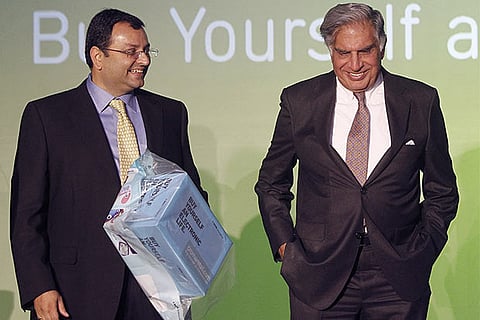

Chennai
Will this take a toll on the brand equity of the two entities – the organisation and the personality? Well-known brand expert Harish Bijoor says, “This is merely a corporate hiccup. Ratan Tata is beyond the organisation. What matters is the consumers, employees, investors and political brand equity. An employee evaluates a company as good or bad; whether there is a hire and fire policy or long-term orientation. It is the top of the pyramid that will feel insecurity.
Since it is a closely-held group, trust essentially will not be an issue at all, from an investor perspective. Lastly, the political brand equity that encompasses the media and society – that is the one stirred and shaken the most.” With Tata Sons apparently taking the moral high ground, following the release of its formal rebuttal statement, a leading corporate lawyer, on condition of anonymity, says “Tata Sons is not there to talk about the interest of Tata Trust. The former is only a shareholder even if the Trust has certain rights in the Articles of Association which we don’t have the benefit to understand. Once nominated as the Chairman, the nominee must keep the interests of the company and not of the nominators,” pointing to the “growing trust deficit” factor mentioned in the tail-end of Mistry’s mail.
Holding the Directors “morally” responsible for the manner in which the whole issue of the conglomerate had unfolded, he said the 60-year-old Corporate Law precedents indicate that the company’s interests are paramount. Whether the final call was taken by the Trust or was it individual judgment of the Directors only throws a doubt on the entire decision-making process, a fact highlighted by Mistry in his missive. “It appears as if Tata Sons are concerned about the Trust rather than Tata Sons itself! This is a clear case of corporate governance really taking a beating,” the lawyer says. However, he points out, “The Company Law Board judgments indicate Mistry cannot cite the “oppression” factor to take legal recourse. At best, Mistry can approach the Company Law Tribunal, as it is a management issue. But being an executive position issue that is removal of whole-time Chairman, the CLT is unlikely to interfere.
Meanwhile, N Srinivasan, an Independent Director on several Boards, says the Schedule IV pertaining to the role of Independent Directors, stipulates that they must discharge their functions to ensure that the internal financial controls are robust and defensive in law. “Ratan Tata should be able to defend himself adequately and the Board also as it constitutes men of good character, who have been functioning in an appropriate manner,” he said. If for some reason, an Independent Director skips a meeting, he or she still has a chance to “raise voice” when the minutes of the unattended meeting comes for confirmation and ratification, Srinivasan further said.
Visit news.dtnext.in to explore our interactive epaper!
Download the DT Next app for more exciting features!
Click here for iOS
Click here for Android